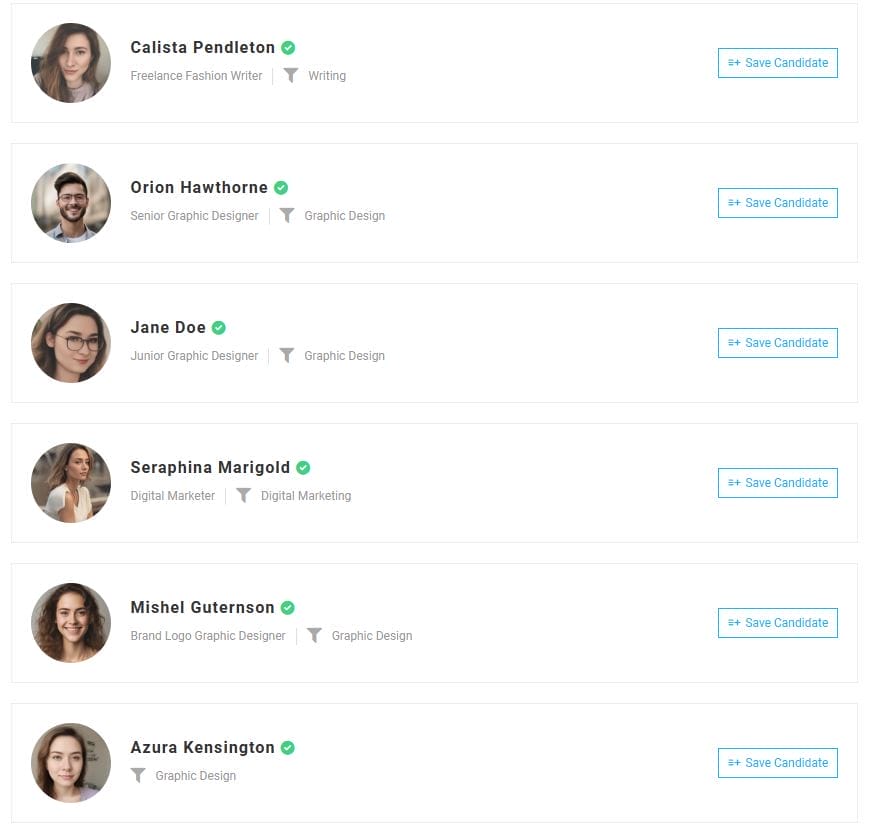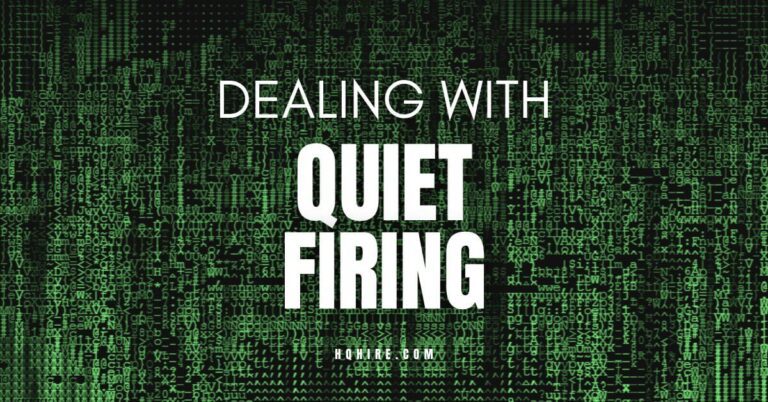Working as a freelancer, you are 1005 responsible for your own career future, and evaluating a freelance job offer can often be just as complex as the work itself. As a freelancer, you a few certain goals:
- You want to ensure that each gig advances your career.
- You want to get compensated fairly.
- You want your freelance job to aligns with your professional goals.
As a freelancer, it is about striking the perfect balance between financial stability and job satisfaction in a market where choice are abundant but assessing job offers are key.
KEY TAKEAWAYS
- Assess job offers with a balance of financial compensation and non-monetary value.
- Research the company to ensure compatibility with your career objectives.
- Approach each offer strategically to boost your freelance career growth.
How to Evaluate a Freelance Job Offer as Freelancer?
Freelance job offer valuation is one of the key skills in order for you to succeed, regardless of what type of niche, industry or job boards you are getting your job offer, you need to know which offer is worth your time and energy, and which is not.
To make you evaluation easier, I’ve broken down the job offer evaluation into a few parts:
- Part 1: Understanding Freelance Job Offers
- Part 2: Assess The Financial and Contractual Aspects
- Part 3: Assess The Non-Monetary Value of The Offer
- Part 4: Understanding The Company, You Are Going to Work as a Freelancer
- Part 5: Making The Commitment
Let’s take a look at how you can spot a good freelancing opportunity and turn it into a delightful experience.
Part 1: Understanding Freelance Job Offers

Evaluating a freelance job offer carefully is crucial. You’ll ensure your work aligns with your skills and goals while securing fair compensation.
Analyzing the Scope and Requirements of the Project
Review the project’s brief meticulously. Make sure you clarify deliverables, deadlines, and any specific client expectations to prevent misunderstandings later on.
Also, gauge if the project complements your portfolio and skills. This analysis can directly influence your reputation and future work opportunities.
Evaluate the Intellectual Property Rights
Next, grasp who retains the intellectual property rights. Then, negotiate terms that safeguard your work, while respecting the client’s needs.
This affects your portfolio and the reuse of the content. So, make sure your contract explicitly states how your creations will be used by the client.
Estimate the Project’s Time and Effort Commitments
Lastly, assess the time required to complete the project. Be realistic and factor in potential revisions or delays.
This estimation helps in setting fair rates and deadlines that reflect the scope of work. Your professional integrity and reputation on review sites or social media depend on delivering quality work within agreed timelines.
Part 2: Assess The Financial and Contractual Aspects

When considering a freelance job offer, it’s vital to thoroughly assess the financial and contractual terms. This ensures your work is valued properly and that you’re protected legally.
Determining Fair Compensation and Rates
It’s essential to determine whether the offer includes fair compensation for your skills.
Research industry standards for project rates and hourly rates to gauge where your work fits.
To begin, ask yourself:
- How complex is the project?
- What level of expertise does it require?
- How does it match with industry-standard rates?
Comparing your expected workload with the proposed compensation will help ensure you’re paid fairly.
Evaluating Payment Terms and Schedules
Understanding the payment terms is another critical step. Make sure the contract specifies:
- Amount to be paid: Project-based or hourly?
- Frequency of payments: Will you be paid weekly, bi-weekly, or monthly?
- Milestones or deliverables required for payment: Are payments tied to deadlines?
Clarify any terms you’re unsure of to avoid delayed or missed payments.
Understanding Taxes and Insurance Considerations
As an independent contractor, you’re responsible for your own taxes and insurance.
Consider:
- Setting aside a portion of each payment for tax purposes.
- Checking if your client will file a 1099 form for your payment records.
- Ensuring you have the appropriate insurance coverage for your business.
This not only safeguards your finances but also shows your professionalism and commitment to your freelance business.
Part 3: Assess The Non-Monetary Value of The Offer

Strange as it may sound, evaluating a freelance job offer goes beyond just the paycheck; it’s about your growth, reputation, and future opportunities.
Money is not always your first priority; these following factors can significantly impact your career trajectory.
Long-Term Value of The Offer
Consider how the project might enhance your career in the long run. Will it allow you to acquire new skills or perfect existing ones?
Think about whether the work could serve as a key piece in your portfolio.
A project that aligns with your career goals may offer immense value over time, even if the immediate financial compensation isn’t top-tier.
Niche of Industry of The Offer
Analyze the industry niche of the job offer. Is it an area that’s in high demand or one that you’re particularly passionate about?
Entering a niche market can position you as a go-to expert, fostering a formidable reputation.
Projects in your niche can reinforce your authority and showcase your specialized skills.
Future Referrals and Recommendations
Infuse your freelancing career with potential by considering the offer’s networking opportunities.
Will this client be likely to recommend you to others?
High-quality, satisfied clients can lead to future referrals, amplifying your standing within the industry.
Positive testimonials bolster your reputation, encouraging new clients to entrust you with their projects.
Part 4: Understanding The Company, You Are Going to Work as a Freelancer

Before you accept a freelance job, it’s essential to know who you’re going to work with. Researching the company helps ensure a positive and professional experience.
When evaluating the company’s job offer, you need to first ask yourself the 3 “Ws”; “Who”, “Why” and “What”. Write down your answers to these 3 questions:
- “Who are you working for?”
- “Why are they hiring you?”
- “What is expected of you as a freelancer?”
Assessing Client Reputation
Start by investigating the client’s reputation. Check their website and social media for insights into their brand and values.
Look for any reviews or testimonials from other freelancers. It’s also a good idea to explore industry forums or trusted platforms where past projects are discussed.
This will give you a sense of the client’s standing in the marketplace and their relationship with other freelancers.
Assessing Client Work History
A client’s work history speaks volumes. Review their past projects and the feedback they’ve given to freelancers.
Noting both the quantity and quality of completed work can indicate reliability and professionalism.
Sift through their portfolio if available to gauge their commitment to excellence and the types of projects they are involved in. This can also help you understand if they align with your own professional standards and work ethic.
Part 5: Making The Commitment

Making the commitment to a freelance job offer is a critical step in your career advancement. It’s where you reinforce your brand, expand your network, and set the stage for future growth.
Ask the Right Questions and Clarify Job Details
Before you commit, ensure you fully understand the job. Confirm project scope, deadlines, and payment terms.
Ask questions like:
- “What is the exact deliverable?”
- “Are revisions included?”
- “When is the payment due?”
This clarity will safeguard your freelancing career against misunderstandings and set a professional tone for the client relationship.
Check Client Review History

Your client’s past behavior often predicts your future experience. Examine their review history for insights on their reliability and communication style.
Look for patterns that signal how they value freelancers. Positive reviews indicate a potential for strong, long-term relationships and personal development.
Read What Other Freelancers Say
Finally, listen to the experiences of peers in your niche or specialization. Their insights can guide your decision.
See if past freelancers mention:
- The client’s respect for the creative process
- Their marketing and networking potential
- Opportunities for growth
Invest time in blogs and forums where freelancers share experiences. It will empower you to make informed commitments that align with your career aspirations.
Increase Rating and Improve Your Freelancer Performance
Elevating your rating and enhancing performance is pivotal to your success as a freelancer. This includes nurturing long-standing client relationships, maximizing your digital footprint, and exploring avenues for professional growth.
Developing Long-Term Client Relationships
Foster trust with your clients by delivering consistent, high-quality work.
Be clear about your capabilities and ensure the project scope is well-defined from the start.
This transparency helps avoid misunderstandings and builds lasting partnerships.
A client who knows you deliver as promised is likely to offer repeat business, enhancing your reputation and ensuring a stable workflow.
Building and Leveraging Your Online Presence
A robust online presence can significantly boost your freelance career.
Keep your profiles on platforms like LinkedIn and freelancing websites up-to-date. Make sure to showcase your latest and greatest work.
Ratings and reviews from clients are akin to career gold. They reflect your commitment to quality and reliability.
Encourage satisfied clients to leave positive feedback. Positive feedback can influence your marketability on online platforms.
Exploring Growth and Specialization Opportunities
Capitalize on opportunities to grow and specialize.
Identify niches that align with your interests and expertise.
Then, tailor your services to become the go-to expert in those areas.
Staying current with industry trends and expanding your skill set can lead to more lucrative and fulfilling projects.
An investment in expanding your capabilities correlates with higher job satisfaction and can command better rates.
Get your 100% Free online resume and get noticed by potential employers. Stand out from millions of talented remote job seekers and find the remote job that you will enjoy and love.
Get Free company page with your own URL, use it to build reputation in the online space. Let talents find you online and post jobs to find high quality talents in the creative industry.







